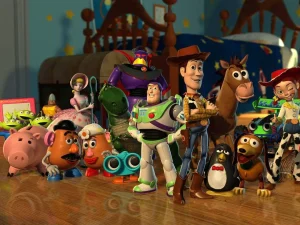Hope Solo’s saga with the U.S. Women’s National Soccer Team is a story filled with both incredible achievements and painful disappointments. Her recent Netflix documentary, Hope Solo vs. U.S. Soccer, brings to light the emotional rollercoaster.
She experienced a gut-wrenching transition from leading her team to victory to facing a dramatic fallout with her teammates and the soccer federation. Here’s a closer look at how these events unfolded and what led to the bitter split.
From Victory to Disillusionment
Hope Solo’s remarkable performance at the 2015 FIFA Women’s World Cup made her a celebrated figure in the world of soccer. She was instrumental in securing the championship for Team USA, a moment of glory that should have been the pinnacle of her career. Yet, upon returning to Seattle, Solo was confronted with a harsh reality that quickly overshadowed her success.
While trying to secure a home loan, Solo discovered that she didn’t have a valid employment contract with U.S. Soccer. This discovery was not just a minor oversight; it was a significant problem that left her feeling deeply betrayed. When she sought answers, she was met with a dismissive attitude, further compounding her frustration and sense of injustice.
The Fight for Fairness

By 2016, Solo was ready to take action. Fueled by her frustration and determination, she teamed up with attorney Rich Nichols to challenge U.S. Soccer for wage discrimination. Solo managed to rally her teammates—Alex Morgan, Megan Rapinoe, Carli Lloyd, and Becky Sauerbrunn—who joined her in filing a lawsuit. Their shared goal was to address the glaring pay gap between the women’s and men’s teams, an issue that had long been a source of frustration.
But then came the 2016 Olympics in Rio de Janeiro. After Team USA’s unexpected loss to Sweden in a penalty shootout, Solo made headlines for calling the Swedish team “a bunch of cowards.” Her comment led to immediate repercussions—she was suspended and her contract with U.S. Soccer was terminated. This was not just a professional setback for Solo but a crushing blow to her personal dreams and ambitions.
Feeling Abandoned
Solo’s suspension was a profound emotional blow. She felt isolated and abandoned by her teammates during a time when she needed their support the most. “All I could think about is these are cowards,” she said, revealing the deep sense of betrayal she felt. Her teammates’ lack of support during her toughest moments was a painful realization that she was fighting her battles largely alone.
Despite this, Solo remained steadfast in her quest for fairness. She reached out to her former teammates, hoping to reignite their collective fight against U.S. Soccer. However, her calls for solidarity went unanswered, forcing her to continue the legal battle on her own in 2018.
The Settlement and Solo’s Discontent
In 2022, a settlement was reached between the U.S. Women’s National Soccer Team and U.S. Soccer, amounting to $24 million. While this settlement was widely celebrated as a significant achievement for gender equality in sports, Solo was far from satisfied. She felt that the settlement was more of a quick fix rather than a true solution to the systemic issues.
“They did not get equal pay,” Solo argued. “We weren’t in it for a settlement. We were in it to change the landscape for women across the country for the rest of time.” Her words reflect a profound disappointment with what she saw as a missed opportunity for real, lasting change.
A Story of Struggle and Persistence
Hope Solo’s journey is a powerful reminder of the personal and professional challenges that come with fighting for equality. Her story highlights the emotional toll of advocating for change and the often lonely path that comes with it. Hope Solo vs. U.S. Soccer provides an intimate look at these struggles and offers insights into the broader fight for fairness in sports.
Watching this documentary gives a deeper understanding of the obstacles faced by athletes like Solo and the perseverance required to confront systemic issues. It’s a story of highs and lows, victories and setbacks, but above all, it’s a testament to Solo’s unwavering commitment to justice and equality in the world of sports.






